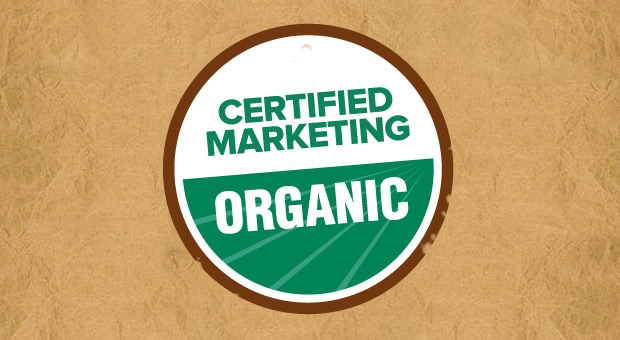Organic farmers and handlers work tirelessly to obtain and maintain the esteemed USDA organic seal. This process involves a multi-year commitment that begins at least three years before any goods earn the coveted mark. It’s loads of hard work, without convenient chemical shortcuts, and research. Then there’s the certification process and, you guessed it, fees. So while they’re doing all this work to comply with rigorous standards, does it all go to waste the second they step foot in a marketing or advertising agency? Should this really be the case? Or is the world in need of a marcom revolution, a shift to a truly “organic” agency and a new discipline within marketing?
We’re all guilty. Think about the stacks and stacks of paper thrown away—not recycled— each day at our offices. Consider the electricity old devices and poorly engineered technologies waste every second of every day. For proof, just take a walk by your agency’s servers and feel the heat emitting from these massive machines. It’s all a senseless waste of valuable resources that ultimately contradicts the essence of what any product that bears the organic seal is trying to promote. Yet, all these products need to be marketed don’t they? But doesn’t it, in fact, taint the very essence if the agency doesn’t adhere to strict eco-conscious protocol for its own business operations? It’s worth pondering—deeply.
So we’re in a bit of a pickle, but there is a solution. In the wake of global resource depletion and looming environmental hazards, now is definitely the right time to stop talking and start implementing. Organic brands should start demanding more from their agencies. How about this: If agencies want to be eligible to market organic products, they too, must uphold similar regulations to the USDA organic seal:
- Ongoing agency-wide recycling program for 3 years before application
- Purchase and use of only energy-efficient technologies for 3 years before application
- Purchase and use of only recycled paper, eco-friendly printing inks & office supplies for 3 years before application
- Undergo annual eco-audits of business operations & maintain “organic-grade” levels of sustainability
- Fifty percent of charitable contributions must benefit environmental causes for 3 years before application
Only the last one is radical, and it would only apply to those agencies that make significant charitable contributions. The other steps to becoming an “organic” agency seem only logical and fair, considering the steadfast commitment that organic producers make to their business operations. If this was a government program, there could be tax benefits (I know, I said the “t” word) to sweeten the deal. Fiscal incentives tend to be the most motivating.
Indulge the happy-hippie daydream just a little more. Imagine the competitive landscape of top agencies charging forward with eco-conservation initiatives just to beat one another to a pitch. It sounds amazing, wonderful, and full of that raw human energy that positively propels the world forward, generation by generation. Meeting organic brands on the same level of environmental commitment certainly gives an agency perspective into its target consumer group. But the compelling thing, in this case, is the collective energy gathered to sustain the one, shared resource most valuable to all of us: Earth. It’s a cool, new way to do business.
